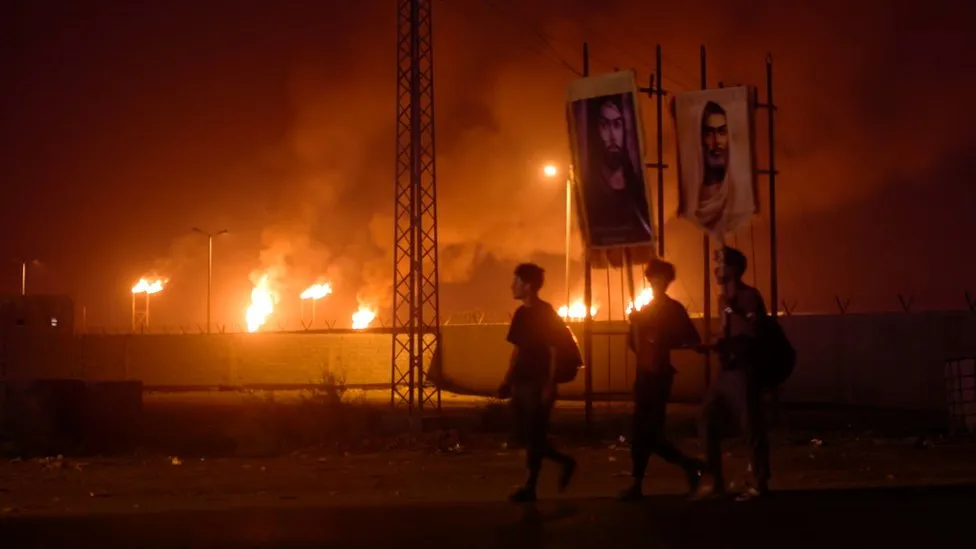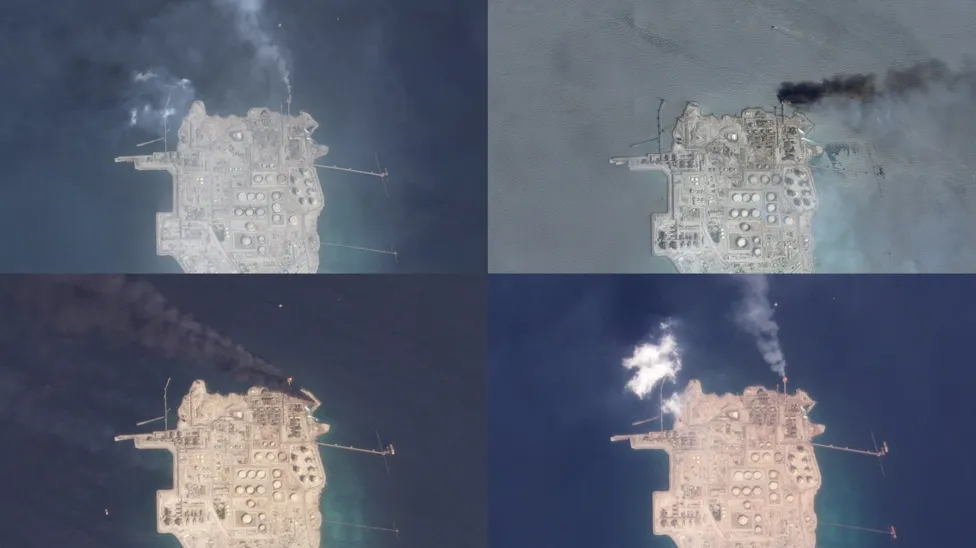28th November 2023. By Owen Pinnell and Sarah IbrahimBBC Arabic

Toxic pollutants released during gas flaring are endangering millions more people than previously feared, a BBC investigation suggests.
Flaring – the burning of waste gas during oil drilling – is taking place across the Gulf, including by COP28 hosts the United Arab Emirates.
New research suggests pollution is spreading hundreds of miles, worsening air quality across the entire region.
It comes as the UAE hosts the UN’s COP28 climate summit on Thursday.
The UAE banned routine flaring 20 years ago, but satellite images show it is continuing, despite the potential health consequences for its inhabitants and those in neighbouring countries.
Analysis for BBC Arabic shows gasses are now spreading hundreds of kilometres across the region.
Pollution from wells in Iraq, Iran and Kuwait were also analysed as part of the study. All of the countries involved either declined to comment or did not respond.
Oil companies, including BP and Shell, who are responsible or partly responsible for sites where flaring took place said they were working to reduce the practice.
On Monday, BBC News revealed leaked documents showed how the UAE had planned to use its role as the host of UN climate talks as an opportunity to strike oil and gas deals.
David R. Boyd, the UN Special Rapporteur on human rights and the environment said the BBC’s findings were: “Very disturbing. Big oil companies and states in the Middle East are violating the human rights of millions of people by failing to tackle air pollution from fossil fuels.
“Despite the massive human suffering, Big Oil and petrostates carry on with business as usual with total impunity and zero accountability.”
Breathless
How the hidden toxic air pollution of the oil giants is spreading hundreds of kilometres, putting the health of millions of people at risk in Dubai, Abu Dhabi, Kuwait, Iran and Iraq.
The documentary is available to watch now on BBC iPlayer (UK only) and is also being broadcast on BBC World News at 09:30 GMT on Saturday 9 December.
Flaring is avoidable and the gas can be captured and used to generate electricity or heat homes – yet it continues to take place across the world.
Pollutants from flaring include PM2.5, Ozone, NO2, and benzo(a)pyrene (BaP) which at high levels or continued exposure have been linked to strokes, cancer, asthma and heart disease according to international experts including the World Health Organisation (WHO).
Global flaring is also a major source of the planet-warming greenhouse gases CO2 and methane.
Two decades ago, the UAE national oil company, Adnoc – run by the president of this year’s COP28 climate summit, Sultan al-Jaber – committed to ending “routine flaring”. Yet assessment of satellite images by the BBC shows it is taking place on a daily basis at offshore sites. The UAE is one of the biggest sources of oil for the UK market.

